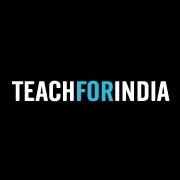
Website UNDP
Background
UNDP is committed to achieving workforce diversity in terms of gender, nationality and culture. Individuals from minority groups, indigenous groups and persons with disabilities are equally encouraged to apply. All applications will be treated with the strictest confidence.
UNDP does not tolerate sexual exploitation and abuse, any kind of harassment, including sexual harassment, and discrimination. All selected candidates will, therefore, undergo rigorous reference and background checks.
UNDP is the UN’s global development network, an organization advocating for change and connecting countries to knowledge, experience, and resources to help people build a better life. UNDP is on the ground in about 170 countries and territories, working with national counterparts on solutions to global and national development challenges.
In the programme countries, UNDP supports stabilization, state-building, governance and development priorities in in partnership with the host governments, the United Nations system, the development partners and other partners to help the country to achieve sustainable development by eradicating poverty in all its forms and dimensions, accelerating structural transformations for sustainable development and building resilience to crises and shock.
UNDP has worked in India since 1951 in almost all areas of human development, from systems and institutional strengthening to inclusive growth and sustainable livelihoods, as well as sustainable energy, environment and resilience. UNDP’s programmes continue to fully integrate a global vision for catalytic change with India’s national priorities. With over 30 projects on the ground in almost every state, today UNDP India works to achieve the Sustainable Development Goals by transforming traditional models to do development differently. In a rapidly changing global environment, the work of UNDP and the broader UN family aligns with the Government of India’s new national development vision, India 2030, and builds upon the Sustainable Development Goals. UNDP India’s country programme for 2018-2022 has three major focus areas:
- Inclusive growth
- Environment and energy
- Strengthening systems and institutions
These are supported by a framework of renewed partnerships and blended finance solutions, a pool of financial and technical resources for greater impact and scale, and South-South expertise.
You are invited to join a team of dedicated development professionals whose primary role is to support the India to achieve the 2030 Agenda. As part of the UNDP team your focus will be to work with multiple stakeholders to find the country specific solutions that lead to sustainable development and to ensure no one is left behind – and we reach those furthest behind first.
UNDP is looking for individuals who have the communication, analytical, planning and implementation capacities that can address links, choices and connections across many issues and sectors. We seek individuals who can apply global best practice to national contexts. We are looking for people who are enthusiastic, motivated, and committed to making a positive contribution to Development in India.
Background and scope of portfolio:
The Energy, Environment and Resilience portfolio at UNDP is organized around the thematic areas of climate change adaptation and mitigation; disaster management and resilience; and access to clean and efficient energy. While India is on track to achieve some of its NDC targets on emission intensity and non-fossil fuel-based energy installations, there remain significant bottlenecks to increasing diffusion of cutting-edge climate technology for the transition to low carbon pathways; and for building adaptive capacity of vulnerable communities to cope with climate change. Unavailability of climate finance further exacerbates the challenge towards achievement of NDCs and green recovery.
The India component of the Japan Supplementary Budget (JSB) supported global project on Net Zero Emissions aims to support India’s transition to a low carbon economy that ensures sustainable and inclusive growth, by creating livelihood provisions (green jobs) and building climate resilience of the vulnerable communities. The JSB- NZE is a Govt of Japan supported programme being implemented by UNDP Globally.
In India, the project will undertake strategic, sector-specific interventions in 9 states, including Madhya Pradesh, Jharkhand, Bihar, Chhattisgarh, Odisha, Uttar Pradesh, Maharashtra, Uttarakhand and Sikkim. In line with the global objectives, the India country proposal has two main objectives are:
- Output 1: Low-carbon development contributing to “just transition” and creating green jobs in transport (urban mobility), MSME, health and agriculture sectors.
- Output 2: Enhancing resilience of communities through community-based adaptation and livelihood diversification
The Adaptation Analyst will provide the technical and programmatic support to the Project Management Unit (PMU). S/he shall work under the direct supervision of the Project Manager (NPM) and the overall guidance of the Chief- Energy, Environment and Resilience Unit, UNDP India. S/he would be responsible for overall implementation of the approved project in the target States. As this is a full-time position, s/he cannot hold any other job/assignments during this assignment.
Duties and Responsibilities
The Adaptation Analyst shall work under the guidance and supervision of the Project Manager, UNDP India. As this is a full-time position, s/he cannot hold any other job/assignments during this assignment. S/he shall liaise with State teams to ensure effective coordination between CO and State offices to effectively implement the project.
- Plan, coordinate and facilitate implementation of project activities to ensure successful project delivery
- Supervise activities of the Project Management Unit (PMU), team members and consultants, as may be recruited under the Project at the state level; to ensure timely delivery in project states
- Provide inputs in the development of overall project annual workplan, outlining key activities, deliverables and timelines
- Provide regular project updates to ensure accurate and timely reporting to UNDP, donor and other key stakeholders
- Provide information and inputs for developing Terms of reference for consultants/ consultancy firms to be hired to undertake project activities
- Commission activities like research studies, state level assessments, training workshops etc. and manage the operational aspects of procurement, event management, logistics etc. in coordination with PMU
- Identify capacity development needs of implementing partners and arrange for necessary trainings
- Manage and track contracts with project partners and flag any potential risks and suggest its mitigation measures. Ensure timely contract management and payments
- Undertake review meetings with partners and field visits to track progress made in implementation of the project and take corrective action as required
- Review quality and consistency of reports and deliverables by partner institutions/ responsible parties including financial reports from all project partners
- Regular financial management and reporting as per the UNDP financial guidelines; ensure effective financial management and reporting as per the UNDP financial guidelines
- Prepare quarterly project progress reports and conduct project review meetings; provide necessary information and inputs for preparing presentations and other documents for project steering committee
- Facilitate and participate in the periodic review meetings and discussions related to project implementation, monitoring and follow-up
- Any other responsibility related to the project
Competencies
Core:
- Achieve Results: LEVEL 2: Scale up solutions and simplifies processes, balances speed and accuracy in doing work
- Think Innovatively: LEVEL 2: Offer new ideas/open to new approaches, demonstrate systemic/integrated thinking
- Learn Continuously: LEVEL 2: Go outside comfort zone, learn from others and support their learning
- Adapt with Agility: LEVEL 2: Adapt processes/approaches to new situations, involve others in change process
- Act with Determination: LEVEL 2: Able to persevere and deal with multiple sources of pressure simultaneously
- Engage and Partner: LEVEL 2: Is facilitator/integrator, bring people together, build/maintain coalitions/partnerships
- Enable Diversity and Inclusion: LEVEL 2: Facilitate conversations to bridge differences, considers in decision making
People Management:
- UNDP People Management Competencies can be found in the dedicated site.
Cross-Functional and Technical Competencies:
Business Direction & Strategy
- System Thinking: Ability to use objective problem analysis and judgement to understand how interrelated elements coexist within an overall process or system, and to consider how altering one element can impact other parts of the system
- Effective Decision Making : Ability to take decisions in a timely and efficient manner in line with one’s authority, area of expertise and resources
Business Development:
- Knowledge Generation : Ability to research and turn information into useful knowledge, relevant for content, or responsive to a stated need
Business Management:
- Project Management: Ability to plan, organise, prioritise and control resources, procedures and protocols to achieve specific goals
- Risk Management : Ability to identify and organize action around mitigating and proactively managing risks
- Resource Management : Ability to allocate and use resources in a strategic or tactical way in line with principles of accountability and integrity
- Communication : Ability to communicate in a clear, concise and unambiguous manner both through written and verbal communication; to tailor messages and choose communication methods depending on the audience Ability to manage communications internally and externally, through media, social media and other appropriate channels
Required Skills and Experience
Education:
Master’s degree from a recognized institution in environmental science/engineering / sustainable development/Social sciences/ public policy
Experience:
- Minimum 2 years of programme / project management experience.
- Experience on climate adaptation will be preferred
- Experience with International organizations on development programmes on climate-vulnerability analysis and climate sensitive adaptation will be preferred.
- Good understanding of climate change and rural development issues at national/sub national level. S/he needs to be conversant with the available knowledge on innovative and inclusive climate change adaptation measures
- Ability to carry out research and communicate solutions that guide decisions on strategic project directions
- Provide technical support in creating the framework, governance mechanism, and structure for the mitigation activities, as planned in the project.
- Co-ordinate feasibility studies, state level assessments, implementation activities and training workshops being done under the project in close coordination with Project Management Unit.
- Ability to build strategic partnerships with a wide array of stakeholders working in the field of climate change mitigation and rural development;
- Strong facilitation and moderation, communication skills
- Excellent documentation skills, including technical and analytical writing
- Outstanding communication, project management and organisation skills
- Ability to build and maintain constructive relationships with colleagues (and reports where appropriate);
Language Requirement:
- Excellent knowledge of written and spoken English and Hindi is mandatory.
Professional Certificates:
Not mandatory-Candidate may list such certificates
To apply for this job please visit estm.fa.em2.oraclecloud.com.





